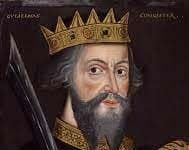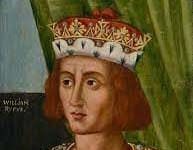Muhammad bin Tughlaq | Brief Biography
Muhammad bin Tughlaq | Brief Biography
Muhammad bin Tughlaq was a ruler of the Tughlaq dynasty of the Delhi Sultanate in India, who reigned from 1325 to 1351 CE. He was born in 1300 CE, the eldest son of Ghiyasuddin Tughlaq, who was then the governor of Multan in modern-day Pakistan.
Muhammad bin Tughlaq ascended the throne after the death of his father in 1325 CE. He was known for his intelligence and education, having studied mathematics, logic, and philosophy at Nalanda University in modern-day Bihar, India. He was also interested in the arts and sciences and was a patron of learning and scholarship.
During his reign, Muhammad bin Tughlaq implemented several policies that were considered innovative and forward-thinking. He introduced a new currency system, which included the minting of copper coins and attempted to shift the capital of the Delhi Sultanate from Delhi to Daulatabad in modern-day Maharashtra. He also experimented with various agricultural reforms, including the introduction of a new system of taxation.
However, Muhammad bin Tughlaq’s reign was marked by several military campaigns and political struggles. He attempted to expand the borders of the Delhi Sultanate through military conquests, but many of his campaigns were unsuccessful. He also faced rebellions and uprisings in various parts of his kingdom, which he often suppressed with extreme brutality.
One of the most controversial decisions of Muhammad bin Tughlaq’s reign was his attempt to convert his entire population to Islam. He issued a decree in 1335 CE that required all Hindus in his kingdom to convert to Islam or face punishment. This policy was widely opposed and was eventually abandoned by the ruler.
Muhammad bin Tughlaq died in 1351 CE, reportedly from drinking contaminated water while on a military campaign in the Deccan region. He was succeeded by his cousin Firoz Shah Tughlaq. 0 0 0.
Muhammad bin Tughlaq Brief Biography
Sources:
John Keay, India: A History (Harper Collins, 2000)
Stanley Lane-Poole, The Mohammedan Dynasties: Chronological and Genealogical Tables (Adamant Media Corporation, 2001)
R. C. Majumdar, History of the Delhi Sultanate (Motilal Banarsidass, 1985). ***
N.B. This article originally belongs to the book entitled ‘Brief Biographies of Eminent Generals and Conquerors’ by Menonim Menonimus.
Books of Biography by M. Menonimus:
- The World Writers-Brief Biographies
- Introduction to World Writers
- Introduction to World Personalities
- Love of Reputed Persons
- Brief Biographies of Prominent Bengali Writers
- Brief Biographies of Eminent Monarchs
- Brief Biographies of Ancient Thinkers and Writers
- Brief Biographies of Eminent Generals and Conquerors ..
Books of Literary Criticism by M. Menonimus:
- World Short Story Criticism
- World Poetry Criticism
- World Drama Criticism
- World Novel Criticism
- World Essay Criticism
- Indian English Poetry Criticism
- Indian English Poets and Poetry Chief Features
- Emily Dickinson’s Poetry-A Thematic Study
- Walt Whitman’s Poetry-A Thematic Study
- Critical Essays on English Poetry
- Tawfiq al-Hakim’s Novel: Return of the Spirit-An Analytical Study
- Tawfiq al-Hakim’s Novel: ‘Yawmiyyat Naib Fil Arayaf’-An Analytical Study
- Analytical Studies of Some Arabic Short Stories
- A Brief History of Arabic Literature: Pre-Islamic Period (500 AD-622 AD)
- A Brief History of Arabic Literature: Early Islamic Period (622 AD-661 AD)
- Reviews on William Shakespeare’s Works
- Reviews of Charles Dickens’ Works
- Reviews of John Milton’s Literary Works
- Reviews of Some Iconic Travelogues …
Additional Searches:











